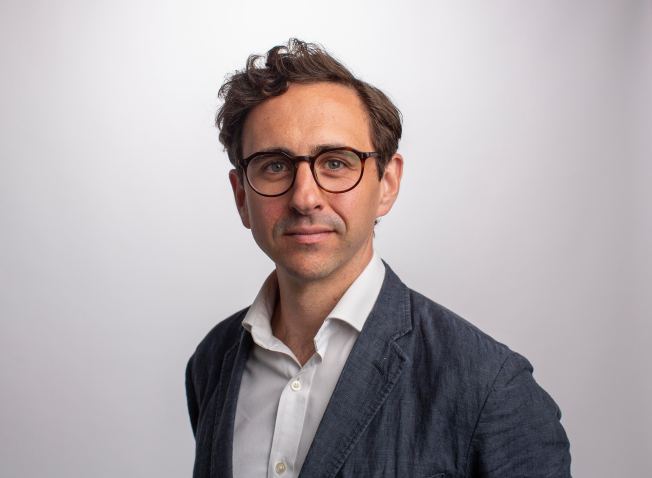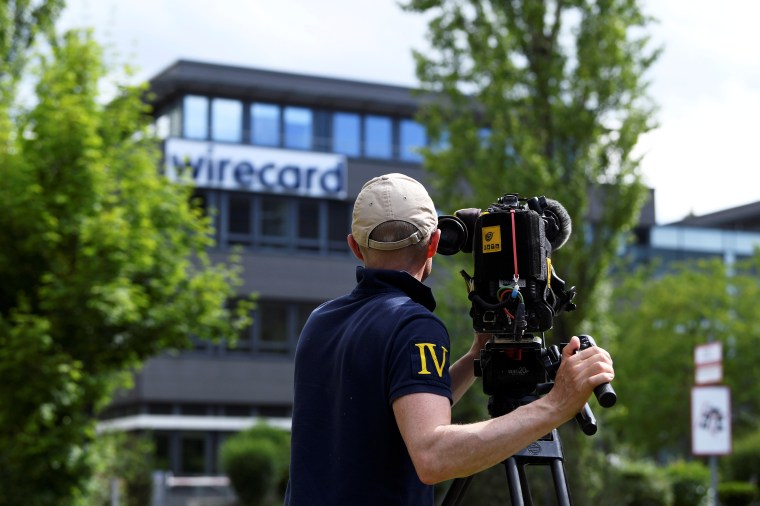Dan McCrum and Stefania Palma, business reporters for the Financial Times, spent years investigating German payments company Wirecard and revealed in a series of articles that the darling of the stock markets and the German tech scene faked its accounts. When it filed for insolvency in June 2020, Wirecard owed creditors billions of dollars, and its auditor said the gaping hole in its books was the result of a sophisticated global fraud.
Before, however, the company went down, the two journalists say Wirecard systematically targeted them for years, with tactics including online abuse, hacking, electronic eavesdropping, physical surveillance, bribing attempts, and legal threats by some of London’s most expensive lawyers.
The German financial regulator launched an investigation into the two journalists in early 2019, filing a criminal complaint for allegedly colluding with speculators, which the FT says was a result of Wirecard’s dirty tactics. The probe ended only after the company’s collapse, with the German prosecutors acknowledging that the journalists’ reporting was “fundamentally accurate” and there was no evidence that they passed on insider information to speculators.
CPJ’s Europe correspondent spoke by video call in October with McCrum and Palma, who are based in London and Singapore, respectively. The interview has been edited for length and clarity.
You are both seasoned investigative reporters and probably used to companies using various tactics against journalists. How much was the Wirecard case unique, or is all that you experienced becoming part of the normal?
Dan McCrum: Some of what Wirecard did, you see a lot in business reporting. They hired expensive lawyers, PR firms, private detectives, corporate intelligence firms, using standard tactics. It also did something effectively for years which is becoming increasingly common: placing fake news about reporters, deploying people pretending to be journalists to investigate their critics, to try and trap them. Businesses are offered this toolkit to deal with criticism. However, what Wirecard did was very different: we gradually began to realize that it was operating as a criminal organization. It was aggressively using intelligence, surveillance to intimidate its critics, there were suggestions that bribes might be available to remove Financial Times stories or influence the coverage and it went so far as to attempt to frame us for crimes.
Stefania Palma: One of the more peculiar ways of how they were trying to push back happened in the Philippines after I travelled there to report on Wirecard’s business partners, and revealed that people and locations mentioned in the documents were not what they were portrayed to be. After my article, a story appeared in a local paper, claiming that a source had been paid to lie to me. In fact, I turned up randomly at his house. Wirecard tried to get this story covered in the UK, which shows the cross-border attempts to push back.
D.M: An effective tactic to slander us in a remote jurisdiction and use that on the other side of the word to attack.

CPJ: Does this mean that there is a whole global infrastructure of enablers available for companies like Wirecard?
D.M.: A recent investigation by Citizen Lab in Toronto revealed a hacker-for-hire gang in India which targeted thousands of people, hundreds of organizations, and one cluster of targets was for Wirecard. What this suggests is that there is a network of corporate intelligence agents, lawyers through whom companies have access to these tools with a level of deniability, protected by confidentiality. It was particularly surprising that authorities were willing to entertain the idea cooked up by these people that FT journalists were corrupt. One of the things I hope will get answered in Germany is why the regulator was so receptive. [Editor’s note: See the financial regulator’s response].
S.P.: Perhaps one of the reasons why it was effective for so long is that this mix of opaque “characters” was intermixed with very reputable companies like huge PR, corporate communications firms, UK lawyers with immense global networks, ties to reputable papers and journalists.

CPJ: How did you feel when the German financial regulator out of all regulators in the world started investigating you?
S.P.: At first it was quite stressful that the regulator of one of the largest financial markets in Europe recommended that a criminal complaint be filed against us. The stress quickly gave way to pure incredulity. Mainly because we knew that the reporting was solid. It was almost surreal that we were the ones being targeted. Up until that moment, I believed that the information we discovered could have been of use to anyone overseeing Wirecard. It was jarring, unexpected, surprising, unbelievable.
D.M.: It felt completely mad. It is one thing to be accused by Twitter bots but when the German financial regulator says that we are investigating you for corruption, you ask yourself, what on earth is going on? It was more frustrating than anything because it is so hard to print a story in a UK context raising allegations of fraud. You have to have so much evidence, you are taking such legal risk. So it was baffling to understand what the German regulator was seeing that we did not after we were publishing repeatedly evidence of significant problems at a very large company. It became stressful because what Wirecard turned it into was a question between its reputation and the reputation of the Financial Times. But I did not take the chance of being prosecuted that seriously because I knew that was just nonsense. At the same time you start feeling that you are banging your head to the brick wall.
CPJ: Did the German regulator reach out to you after they closed the investigation acknowledging that your reporting was accurate, the allegations unfounded?
D.M.: Not in the slightest. We only had an official notice about closing the investigation. I think BaFin [Germany’s Federal Financial Supervisory Authority]fundamentally did not understand how journalism works and did not attempt to find out. The suspicions it raised were groundless and if you know anything about journalism ridiculous, too. A key thing BaFin found suspicious was that we did not publish everything we had in one go. We wrote three stories in a space of a week, with two pieces with lots of information and a third feature piece. They seem to think that we were doing that to maximize profit for speculators. They sort of admitted that that was a misunderstanding but they investigated who might have leaked it, by implication suggesting they still think someone at the FT is corrupt.
S.P.: It was very confusing. The question to which we still have no answer is why they started the investigation at all. There are still a lot of unanswered questions about their motives.
D.M.: To be fair to BaFin: the one piece of evidence was an unsigned witness statement provided by a former convicted criminal who claims that he had advanced knowledge of the first story we published January 30, 2019. This person supposedly thought that the story was going to be published at 1 pm although 1 pm was the deadline which was given to the company to react. BaFin does not seem to have considered the possibility that Wirecard had itself access to this information and may have leaked it as a pretext to discredit us. There has been a fundamental failure of imagination at best on the part of the regulator.
CPJ: What is your take-away from all this? Is it that people do not trust the media and financial regulators are just people like anyone else? Or is it more that German financial regulators might be intertwined with those they are supposed to oversee?
D.M.: I wouldn’t tar all financial regulators in the world with the same brush. We don’t have the answer, but there is going to be a parliamentary inquiry in Germany which I hope will get to the bottom of why Wirecard appeared to have a close relationship with BaFin over several years.
S.P.: The Singapore regulators reacted differently: days after we published our first piece, the police were raiding Wirecard offices, launched a criminal investigation and remained pro-active. The question is still whether German regulators took the time to go through all that we published, which paints a clear picture of what was going on at the company. And if not, why did it not happen? And how did they end up by investigating the journalists themselves?
CPJ: What did you and FT learn from this experience? What should business journalists investigating corporate crime take into consideration?
D.M.: We learnt what journalists pursuing these kind of stories would have to be prepared to accept. At the same time, the lesson is to keep on the story. We have emerged from it stronger with FT`s reputation enhanced. In that sense, it is encouraging that truth did come out in the end although it was expensive and difficult on the road.
S.P.: Our experience also highlighted that the cyber angle is becoming stronger. Business journalists looking into stories poking big players should be prepared for what can happen from the cyber front, as well.
D.M.: It is important to call out the involvement of those who take part in these campaigns. In the end it was a battle of reputations and in that sense, it is important to recognize the contribution of those helping to protect the reputation of companies like Wirecard and attack the reputation of newspapers like the FT.
In an email to CPJ, BaFin spokesperson Anja Schuchhardt denied that the regulator’s investigation was launched at the initiative of Wirecard or that it was directed at the journalistic work of the FT reporters. “Rather, we investigated the question of whether there might have been a collusive link between short-selling and negative reporting (market manipulation),” she said, adding that the regulator reported this suspicion to the prosecutor earlier than suspicions about Wirecard’s accounting “solely due to the fact that the latter report was dependent on the findings of the auditor.”
CPJ emailed questions to the insolvency administrator of Wirecard but received no reply.
